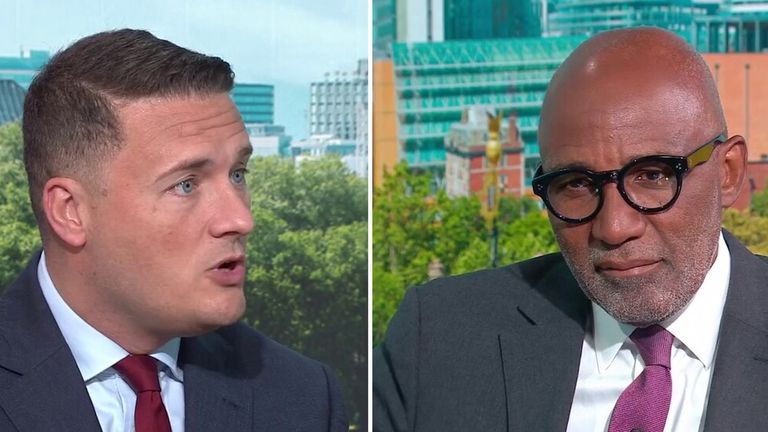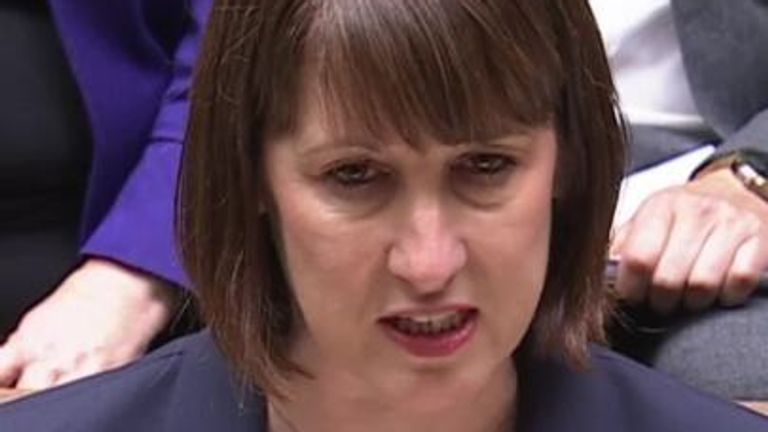Ministers ‘will not soften blow’ for pensioners no longer receiving winter fuel payments
Ministers are not looking to soften the blow for 10 million pensioners who will no longer receive winter fuel payments, the prime minister’s spokesman has said.
Ahead of a vote on Tuesday on the controversial decision to limit winter fuel payments to those on pension credit, the government is remaining steadfast despite growing opposition from Labour MPs, unions and charities.
Up until now, all pensioners received the payment to help with higher energy bills over the winter.
Following a cabinet meeting on Monday, Sir Keir Starmer’s spokesman was asked if ministers discussed softening the impact for pensioners no longer eligible.
“Not at all,” he said.
“The cabinet are in agreement that we need to fix the foundations of our economy, and this is the mandate that they have been asked by the country to deliver.”
He said the government is “committed to supporting pensioners” through the pensions triple lock, which ensures state pensions rise every April by whatever is higher out of 2.5%, inflation or average earnings.
The spokesman also said pensions are going up because of it, while energy bills are going down.
There has been a 115% increase in people applying for pension credit in the five weeks since the government announced the winter fuel payment cut, he added.
A total of 38,500 pension credit claims have been made since the announcement on 29 July.
He maintained what Sir Keir has repeatedly said since the decision – that it is “not a decision he wanted to make” but the government has to make “tough choices” to fix the economy’s foundations.
A campaign to get people to sign up to pension credit, if they are eligible, is ongoing and people are being asked to check their eligibility, Sir Keir’s spokesman said.
Asked if the PM has accepted some people could die this winter because they cannot pay for heating as they are no longer eligible, the spokesman said there is a “range of support for those struggling this winter” and the government is focusing on ensuring people have access to that support.
Be the first to get Breaking News
Install the Sky News app for free



Minister Louise Haigh later on Monday excused the government giving pay rises to several groups of public workers while cutting the winter fuel payment, as she said it is the “only way” to ensure public services run properly to reduce the cost of living burden and get the economy growing again.
She warned: “Ahead of the budget, there will be more difficult spending decisions. But it’s a terrible economic situation that we’ve inherited, and we’re really, really angry about that.
“There’s no two ways about it, but that’s the context that we’ve inherited and the previous government was spending money like it was going out of fashion.”
It is understood about 30 Labour MPs are unhappy with the decision to cut winter fuel payments from 16 September.
However, they are expected to abstain, rather than vote against the government tomorrow after Sir Keir suspended seven Labour MPs for doing so in July.
Sir Keir would not say if he would again suspend MPs for voting against the government, telling the BBC on Sunday: “That will be a matter for the chief whip.”
Read more:
Starmer facing pressure over winter fuel payments and prisoners early release
Action being taken to ensure domestic abuse prisoners not released early
The prime minister will address the Trades Union Congress (TUC) conference on Tuesday, where he is set to be questioned about the winter fuel payment cut and workers’ rights.
Sharon Graham, head of Unite, the largest trade union, has called for Sir Keir to U-turn on the policy as she said the public cannot understand why a Labour government is choosing to “pick the pocket of pensioners” while leaving the richest “totally untouched”.

